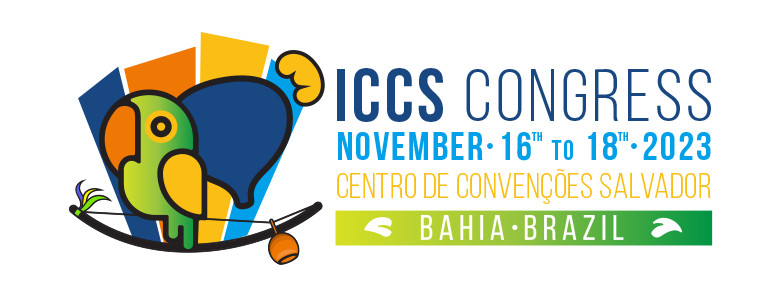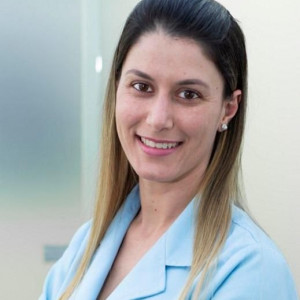Program
Filter activities
Plenary (Mezanino - Sala 100/101/102B)
- 07:50 - 08:00 Opening
-
Opening Cerimony
-
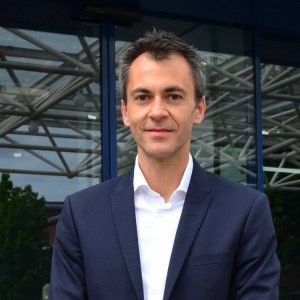
KONSTANTINOS KAMPERIS
Presenter
-
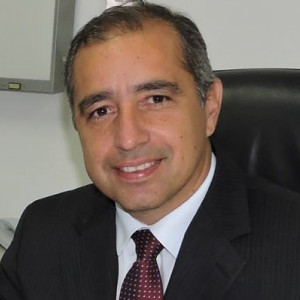
UBIRAJARA DE OLIVEIRA BARROSO JR.
Presenter
-
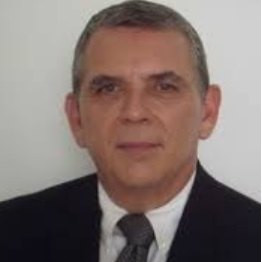
ALFREDO FELIX CANALINI
Presenter
-
Plenary (Mezanino - Sala 100/101/102B)
- 08:00 - 09:05 Lecture
-
Enuresis
-

MICHAL MATERNIK
Moderator
-

ATILA VICTAL RONDON
Moderator
- 08:00 - 08:05
-
Case presentation
-

MICHAL MATERNIK
Presenter
-
- 08:05 - 08:15
-
Standard urotherapy, does it work for all?
-

TRYGGVE NEVEUS
Speaker
-
- 08:15 - 08:25
-
Strategy for choosing the first line therapy
-

SOREN RITTIG
Speaker
-
- 08:25 - 08:35
-
When all fail. What to do?
-

YOSHIYUKI OHTOMO
Speaker
-
- 08:35 - 08:45
-
Enuresis treatment in low-income population
-
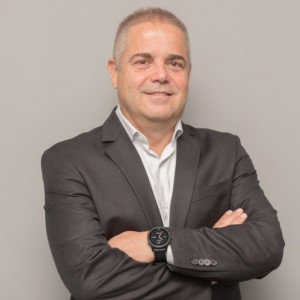
JOSÉ MURILLO BASTOS NETTO
Speaker
-
- 08:45 - 09:05
-
Q&A
-

TRYGGVE NEVEUS
Discussant
-

SOREN RITTIG
Discussant
-

YOSHIYUKI OHTOMO
Discussant
-

JOSÉ MURILLO BASTOS NETTO
Discussant
-
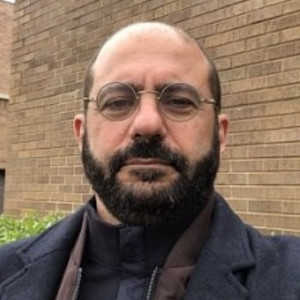
MARCOS GIANNETTI MACHADO
Discussant
-
-
Plenary (Mezanino - Sala 100/101/102B)
- 09:05 - 10:00 Lecture
-
Abstract Presentation
-

EDURNE ORMAECHEA
Moderator
-

TRYGGVE NEVEUS
Moderator
- 09:05 - 09:09
-
Enuresis Alarm For Treatment Of Urinary Incontinence In Children With Combined Daytime Incontinence And Enuresis (The Abde-Study)
- 09:09 - 09:13
-
Development Of A Novel Prediction Tool For Response To First-Line Treatments Of Monosymptomatic Nocturnal Enuresis - A Randomized, Controlled International Multicenter Study (Drychild)
-

SOREN RITTIG
Abstract Presenter
-
- 09:13 - 09:17
-
The Effects Of Discontinuing Night-Time Protection In Children With Nocturnal Enuresis – A Multi-Centre, International Randomized Controlled Trial
- 09:17 - 09:25
-
Q&A
- 09:25 - 09:29
-
Analysis Of Emotional And Behavioral Problems And Related Factors In Children With Diurnal Urinary Incontinence
-
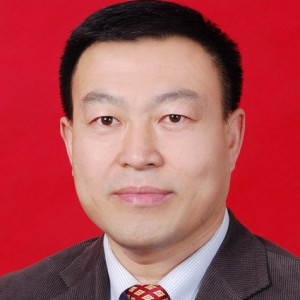
JIAN WEN
Abstract Presenter
-
- 09:29 - 09:33
-
Brain Cortex Morphometry And Functional Connectivity Correlates Of Daytime Urinary Incontinence In 9- To 10-Year-Olds In The US
- 09:33 - 09:37
-
Neuro-Correlates Of Nocturnal Enuresis In Children
-
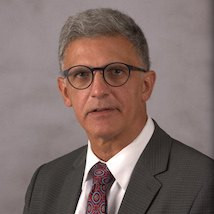
ISRAEL FRANCO
Abstract Presenter
-
- 09:37 - 09:45
-
Q&A
- 09:45 - 09:48
-
Establishment Of Nocturnal Bladder Control And Behavioral Sexual Dimorphism In Children
-

KIMIHIKO MORIYA
Abstract Presenter
-
- 09:48 - 09:51
-
Intraindividual Variation In Voiding Diaries Of Children With Enuresis
-

KONSTANTINOS KAMPERIS
Abstract Presenter
-
- 09:51 - 09:54
-
Use Of ChatGPT In Pediatric Urology And Its Relevance In Clinical Practice: Is It Useful?
-
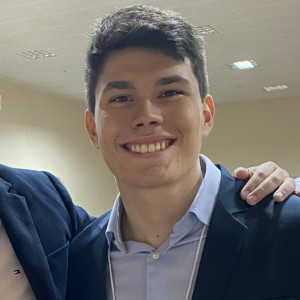
ANTONIO VITOR NASCIMENTO MARTINELLI BRAGA
Abstract Presenter
-
- 09:54 - 10:00
-
Q&A
-
Plenary (Mezanino - Sala 100/101/102B)
- 10:00 - 10:30 Break
-
Break
Plenary (Mezanino - Sala 100/101/102B)
- 10:30 - 11:00 Lecture
-
Abstract Presentation
-

ALEXANDER VON GONTARD
Moderator
-
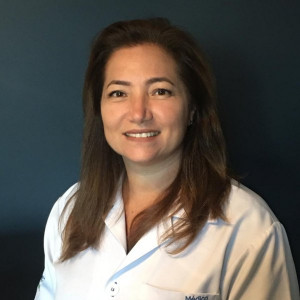
FERNANDA GHILARDI
Moderator
- 10:30 - 10:34
-
Mirabegron Treatment Outcomes In Treatment Resistant Frequent Non Monosymptomatic Enuresis (NMNE)
- 10:34 - 10:38
-
Cumulative Symptomatic Efficacy Of Mirabegron In Refractory Overactive Bladder In Children: A Three And-A-Half Year Retrospective Single-Centre Review
- 10:38 - 10:42
-
Urinary Incontince And School Performance - The Impact Of Mental Disorders And Age At Treatment Onset
- 10:42 - 10:50
-
Q&A
- 10:50 - 10:53
-
Mental Disorders And Continence Problems: A Prospective Study Of Bidirectional Relationships
-

CAROL JOINSON
Abstract Presenter
-
- 10:53 - 10:56
-
Association Of Toilet Training Age With Lower Urinary Tract Symptoms Development: A Case-Control Study
-

CATHARINA DA SILVA
Abstract Presenter
-
- 10:56 - 11:00
-
Q&A
-
Plenary (Mezanino - Sala 100/101/102B)
- 11:00 - 12:10 Lecture
-
BBD
-
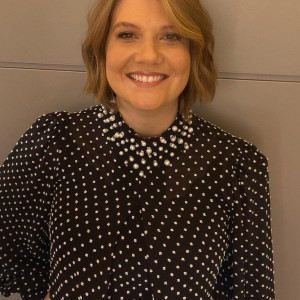
CAMILA FACHIN
Moderator
-

PATRINA CALDWELL
Moderator
- 11:00 - 11:10
-
Current concepts of Physiopathology
-

KONSTANTINOS KAMPERIS
Speaker
-
- 11:10 - 11:20
-
The Bladder and Bowel Dysfunction. should we include one more B?
- 11:20 - 11:30
-
How neuropsychiatric disorders change treatment
-

ALEXANDER VON GONTARD
Speaker
-
- 11:30 - 11:40
-
The relationship of diapers and incontinence
-

JIAN WEN
Speaker
-
- 11:40 - 11:50
-
Technology for kids in urotherapy
-

LUIS BRAGA
Speaker
-
- 11:50 - 12:10
-
Q&A
-

KONSTANTINOS KAMPERIS
Discussant
-

UBIRAJARA DE OLIVEIRA BARROSO JR.
Discussant
-

ALEXANDER VON GONTARD
Discussant
-

JIAN WEN
Discussant
-

LUIS BRAGA
Discussant
-
-
Plenary (Mezanino - Sala 100/101/102B)
- 12:10 - 12:55 Satellite Symposium
-
Kimberly-Clark sponsored Satellite Symposium - Putting the rumors to bed: Discussing the implications of the DryNites® clinical trial

-

KONSTANTINOS KAMPERIS
Moderator
- 12:10 - 12:20
-
Current gaps in the evidence supporting parent/carer decision-making in PNE - Review of existing guidance regarding use of absorbent pyjama pants
-

JULIETTE RAYNER
Speaker
-
- 12:20 - 12:35
-
The study design and rationale of the DRYNITES clinical trial - Summary of DRYNITES trial results
-

SOREN RITTIG
Speaker
-
- 12:35 - 12:55
-
Panel discussion and audience Q&A - How will these results change advice given in PNE?
-

JULIETTE RAYNER
Discussant
-

SOREN RITTIG
Discussant
-

KONSTANTINOS KAMPERIS
Discussant
-
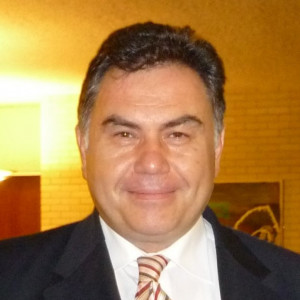
SERDAR TEKGUL
Discussant
-
-
Plenary (Mezanino - Sala 100/101/102B)
- 12:55 - 13:30 Break
-
Break
Plenary (Mezanino - Sala 100/101/102B)
- 13:30 - 14:40 Lecture
-
Abstract Presentation
-

ANKA NIEUWHOF-LEPPINK
Moderator
-

STUART BAUER
Moderator
- 13:30 - 13:34
-
Morphological And Connectomic Brain Correlates Of Constipation In 9- To 10-Year-Olds In The US
- 13:34 - 13:38
-
Analysis Of Predictors For Long-Term Emotional And Behavioral Altrations In Children And Adolescents Treated For BBD: A Cohort Study
-

JULIANA COSTA
Abstract Presenter
-
- 13:38 - 13:42
-
Comparison Of The Effects Of Transcutaneous Electrical Nerve Stimulation And Manual Therapy Techniques On Lower Urinary System Dysfunctions In Children With Cerebral Palsy
-

BETUL UNAL
Abstract Presenter
-
- 13:42 - 13:50
-
Q&A
- 13:50 - 13:54
-
Posterior Tibial Nerve Stimulation For Refractory Overactive Bladder In Pediatrics: Symptom Score And Quality Of Life Improvement
-
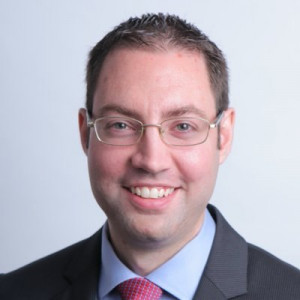
JASON VAN BATAVIA
Abstract Presenter
-
- 13:54 - 13:58
-
Long Term Results Of Parasacral Transcutaneous Electrical Nerve Stimulation (Ptens) In Paediatric Overactive Bladder
-

MICHAL MATERNIK
Abstract Presenter
-
- 13:58 - 14:02
-
Predictors Of Outcome In Children And Adolescents With Bladder And Bowel Dysfunction Treated With Parasacral Transcutaneous Electrical Nerve Stimulation
-

CLISTENE LIMA FIGUEREDO
Abstract Presenter
-
- 14:02 - 14:10
-
Q&A
- 14:10 - 14:13
-
Understanding Pediatric Patient Experiences With Urotherapy Supporting Products: Focus Group And Co-Creation Sessions
-

LOLA BLADT
Abstract Presenter
-
- 14:13 - 14:16
-
Pee And Poop Without Crisis: An Omnichannel Educational Channel On Standard Urotherapy
-

RITA PAVIONE
Abstract Presenter
-
- 14:16 - 14:19
-
Effectiveness Of Group-Based Standard Urotherapy
-
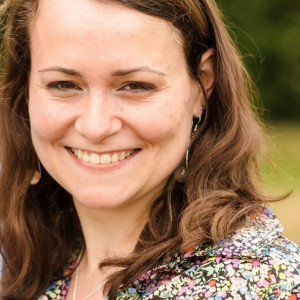
BIEKE SAMIJN
Abstract Presenter
-
- 14:19 - 14:25
-
Q&A
- 14:25 - 14:28
-
Impaired Toilet Training And Incontinence Problems In Children With Developmental Coordination Disorder
-

BIEKE SAMIJN
Abstract Presenter
-
- 14:28 - 14:31
-
Educational Video About Toilet Training For Parents And Caregivers Of Children
-

ALINE MAZZALI
Abstract Presenter
-
- 14:31 - 14:34
-
Emotional And Behavioral Symptoms Among Children At School Entrance And Their Association To Urinary And/Or Fecal Incontinence – A Danish Survey Study
- 14:34 - 14:40
-
Q&A
-
Plenary (Mezanino - Sala 100/101/102B)
- 14:40 - 15:30 Lecture
-
Crossfire Session - Medications for Overative Bladder
-

JASON VAN BATAVIA
Moderator
-

MARCOS GIANNETTI MACHADO
Moderator
- 14:40 - 14:45
-
Case presentation
-

JASON VAN BATAVIA
Presenter
-
- 14:45 - 14:55
-
I prefer Anticholinergics
-
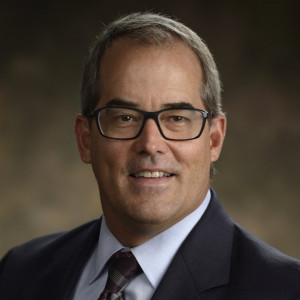
PAUL AUSTIN
Speaker
-
- 14:55 - 15:05
-
I prefer Mirabegron
-

ANNE WRIGHT
Speaker
-
- 15:05 - 15:15
-
I prefer alpha-blockers
-

ISRAEL FRANCO
Speaker
-
- 15:15 - 15:30
-
Q&A
-

JASON VAN BATAVIA
Discussant
-

PAUL AUSTIN
Discussant
-

ANNE WRIGHT
Discussant
-

ISRAEL FRANCO
Discussant
-
-
Plenary (Mezanino - Sala 100/101/102B)
- 15:30 - 16:00 Break
-
Break
Plenary (Mezanino - Sala 100/101/102B)
- 16:00 - 16:30 Lecture
-
Kelm Hjalmas - Memorial Lecture
- 16:00 - 16:05
-
Introduction
-

PAUL AUSTIN
Presenter
-
- 16:05 - 16:30
-
The Impact of Urodynamics on the Development of Pediatric Urology
-

STUART BAUER
Speaker
-
Plenary (Mezanino - Sala 100/101/102B)
- 16:30 - 17:15 Lecture
-
Neurogenic Bladder
-

ANNE WRIGHT
Moderator
- 16:30 - 16:35
-
Case presentation
-

CRISTIAN SAGER
Presenter
-
- 16:35 - 16:45
-
What we’ve learned from urodynamics from UMPIRE
-

STACY TANAKA
Speaker
-
- 16:45 - 16:55
-
Urodynamics beyond the ICCS standardization
-

ELIZABETH YERKES
Speaker
-
- 16:55 - 17:05
-
The Effect of Clean Intermittent Catheterization on Family & Social Relationships: What it Takes to be ‘Normal’
-

STUART BAUER
Speaker
-
- 17:05 - 17:15
-
Q&A
-

CRISTIAN SAGER
Discussant
-

STACY TANAKA
Discussant
-

ELIZABETH YERKES
Discussant
-

STUART BAUER
Discussant
-
-
Plenary (Mezanino - Sala 100/101/102B)
- 17:15 - 18:00 Lecture
-
Abstract Presentation
-

MARIA GABRIELA RETAMAL PINTO
Moderator
-

SOREN RITTIG
Moderator
- 17:15 - 17:18
-
Brain Bladder Flow: Do Patients With Luts And Neuropsychiatric Disorders Have Differences In Uroflows?
-
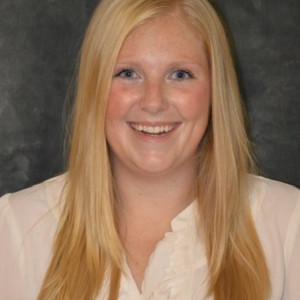
KATHERINE FISCHER
Abstract Presenter
-
- 17:18 - 17:21
-
Evaluation Of Agreement Between Two Uroflowmetry Tests In Children With Lower Urinary Tract Symptoms
-
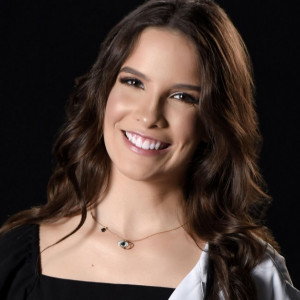
DANNIELE ALMEIDA NERI
Abstract Presenter
-
- 17:21 - 17:24
-
Evaluation Of Voiding Function In Children With Overactive Bladder By Using Home-Uroflowmetry And Its Clinical Significance
-

JIAN WEN
Abstract Presenter
-
- 17:24 - 17:30
-
Q&A
- 17:30 - 17:33
-
Pelvic Dyssynergia On High-Resolution Anorectal Manometry (Hr-Arm) In Children With Lower Urinary Tract Symptoms (LUTS)
-

CATARINA ROSIER
Abstract Presenter
-
- 17:33 - 17:36
-
Changes Of Urodynamics And Psychological-Behavioral Profile Before And Post Detethered Procedures In Children With Tethered Cord Syndrome
-

JIAN WEN
Abstract Presenter
-
- 17:36 - 17:39
-
Can We Prospectively Follow Neurogenic Bladder Patients From The First Year? An Uniform Protocol With The Same Team And Urodynamic Device
-
EMANUELLE LIMA MACEDO
Abstract Presenter
-
- 17:39 - 17:45
-
Q&A
- 17:45 - 17:48
-
Urodynamic Behavior Of The Neurogenic Bladder After Urinary Sphincter Placement
-
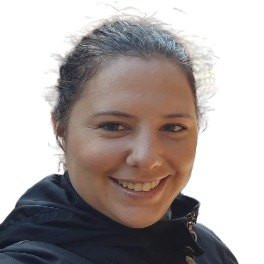
ANA DANIELA, CASTRO DU PLESSIS
Abstract Presenter
-
- 17:48 - 17:51
-
Medium And Long-Term Results Of Botulinum Toxin Treatment In Patients With Bladder Augmentation
-
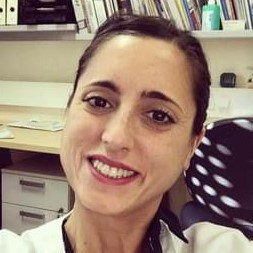
ROCIO JIMENEZ CORRO
Abstract Presenter
-
- 17:51 - 17:54
-
Early Administration Of Botulinum Toxin In Children With Neurogenic Detrusor Overactivity: A Single Center Experience In Children 5 And Under
-
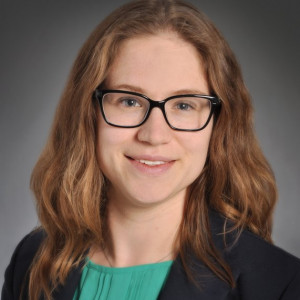
ELIZABETH ROTH
Abstract Presenter
-
- 17:54 - 18:00
-
Q&A
-
Plenary (Mezanino - Sala 100/101/102B)
- 08:00 - 09:00 Lecture
-
Abstract Presentation
-

BIEKE SAMIJN
Moderator
-

JIAN WEN
Moderator
- 08:00 - 08:04
-
The Effect Of Methylphenidate For Giggle Incontinence In Children
-

LUISE BORCH
Abstract Presenter
-
- 08:04 - 08:08
-
Giggle Incontinence: A Frequent Sympotm In Patients With Lower Urinary Tract Disfunction
-

GABRIEL PLA CID
Abstract Presenter
-
- 08:08 - 08:12
-
Evaluation Of The Prevalence Of Hypogastric Pain In Patients With Lower Urinary Tract Symptoms: A Cross-Sectional Study
-

GABRIEL PLA CID
Abstract Presenter
-
- 08:12 - 08:20
-
Q&A
- 08:20 - 08:24
-
Comparative Evaluation Of Two In-Utero Open Techniques To Repair Myelomeningocele In Regards To Motor, Ventricular Peritoneal Shunt And Bladder Function Parameters
-

RENATA ALVES CORREA
Abstract Presenter
-
- 08:24 - 08:28
-
Long Term Follow-Up Of Patients With Myelomeningocele After In-Utero Repair: What Is The Fate Of The Bladder?
-

TAIANE ROCHA CAMPELO
Abstract Presenter
-
- 08:28 - 08:32
-
Initial Bladder Categorization After In-Utero Myelomeningocele Closure: A Prospective Analysis Of 12 Years Of Follow-Up
-
EMANUELLE LIMA MACEDO
Abstract Presenter
-
- 08:32 - 08:40
-
Q&A
- 08:40 - 08:44
-
Accuracy Between Rome IV And Instruments To Assess Functional Constipation – Constipation Score, Rectal Diameter, Bristol Scale, And Dysfunctional Voiding Scoring Symptom – In Children And Adolescents
-

CLARA PAMPONET
Abstract Presenter
-
- 08:44 - 08:48
-
Lower Urinary Tract Problems In Young Adults With Previous Vesico-Ureteral Reflux And Controls
-
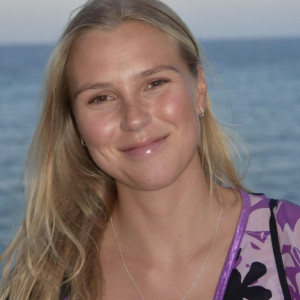
SOFIA TJERNLUND
Abstract Presenter
-
- 08:48 - 08:52
-
Evolution Of Vesicoureteral Reflux In Children With Myelomeningocele With A Proactive Approach
-

CRISTIAN SAGER
Abstract Presenter
-
- 08:52 - 09:00
-
Q&A
-
Plenary (Mezanino - Sala 100/101/102B)
- 09:00 - 10:00 Lecture
-
Abstract Presentation
-
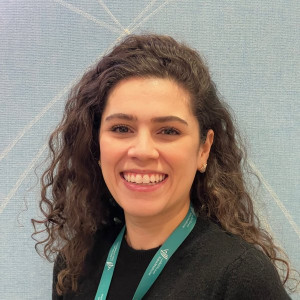
ANANDA NACIF NUNES
Moderator
-

KONSTANTINOS KAMPERIS
Moderator
- 09:00 - 09:04
-
A Prospective Feasibility Study Of Implementing Sitta Method In The Management Of Enuresis
-

STEPHANIE ORR
Abstract Presenter
-
- 09:04 - 09:08
-
Predictors Of Response And Adherence To Enuresis Alarm Therapy – A Confirmatory Study
-

TRYGGVE NEVEUS
Abstract Presenter
-
- 09:08 - 09:12
-
Symptoms And Treatment-Response To The Enuresis Alarm In Adults
-

AMADEUS BERGSTEN
Abstract Presenter
-
- 09:12 - 09:20
-
Q&A
- 09:20 - 09:24
-
Dysfunctional Voiding: Does A Validated Urine Color Scale Correlate With Dysfunctional Voiding Severity Score?
-

OSAMA AL-OMAR
Abstract Presenter
-
- 09:24 - 09:28
-
Analysis Of Related Factors Of Recurrent Urinary Tract Infection In Children With Phimosis And Rechundant Prepace
-

JIAN WEN
Abstract Presenter
-
- 09:28 - 09:32
-
Clinical Phenotyping Of Children With Nocturnal Enuresis: A Key Classification To Approach Improvement
-

RITA PAVIONE
Abstract Presenter
-
- 09:32 - 09:40
-
Q&A
- 09:40 - 09:44
-
Long-Term Efficacy Of Mirabegron-Anticholinergic Combination In Paediatric Neurogenic Bladder
-

ARASH TAGHIZADEH
Abstract Presenter
-
- 09:44 - 09:48
-
Prevalence Of Spina Bifida In Brazil: An Analysis By State And Region With Gender-Specific Differences
-

OLIVIA HIROKI
Abstract Presenter
-
- 09:48 - 09:52
-
Strengthening Care For Children With Urological Sequelae Related To Congenital Zika Virus Syndrome: Experience Of A Federal Institute In Rio De Janeiro As A Training Center For Health Professionals
-

GRACE FERREIRA DE ARAUJO
Abstract Presenter
-
- 09:52 - 10:00
-
Q&A
-
Plenary (Mezanino - Sala 100/101/102B)
- 10:00 - 10:30 Break
-
Break
Plenary (Mezanino - Sala 100/101/102B)
- 10:30 - 11:00 Lecture
-
SIUP Session
-
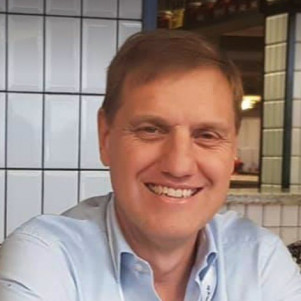
SEBASTIAN TOBIA
Moderator
- 10:30 - 10:50
-
Botulinum Toxin. When and how?
-

CRISTIAN SAGER
Speaker
-
- 10:50 - 11:00
-
Q&A
-

CRISTIAN SAGER
Discussant
-
-
Plenary (Mezanino - Sala 100/101/102B)
- 11:00 - 12:00 Lecture
-
Surgery in Neurogenic Bladder
-

SEBASTIAN TOBIA
Moderator
-
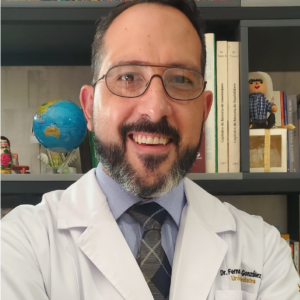
FERNANDO JOSE GONZALEZ LEDON
Moderator
- 11:00 - 11:10
-
Bladder augmentation. How to minimize complications
-

TIAGO ELIAS ROSITO
Speaker
-
- 11:10 - 11:20
-
Slings. Indication and technique
-
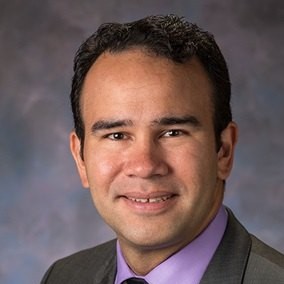
DANIEL DAJUSTA
Speaker
-
- 11:20 - 11:30
-
How to treat incontinence of Mitrofanoff channel
-

SEBASTIAN TOBIA
Speaker
-
- 11:30 - 11:40
-
Bladder neck closure. When and how?
-
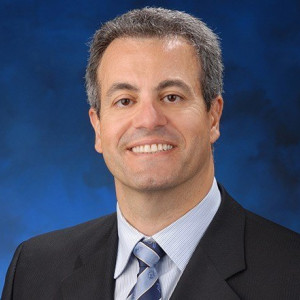
ANTOINE KHOURY
Speaker
-
- 11:40 - 12:00
-
Q&A
-

TIAGO ELIAS ROSITO
Discussant
-

ANTOINE KHOURY
Discussant
-

DANIEL DAJUSTA
Discussant
-

SEBASTIAN TOBIA
Discussant
-
-
Plenary (Mezanino - Sala 100/101/102B)
- 12:00 - 13:30 Break
-
Break
Plenary (Mezanino - Sala 100/101/102B)
- 13:30 - 14:35 Lecture
-
Transition Urology 1
-

JOSÉ MURILLO BASTOS NETTO
Moderator
-

ISRAEL FRANCO
Moderator
- 13:30 - 13:45
-
Preparing the paediatric patient for adult life
-
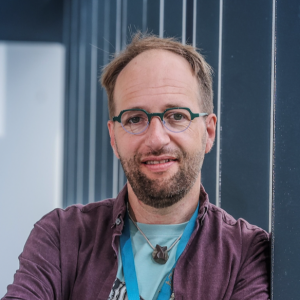
GUNTER DE WIN
Speaker
-
- 13:45 - 13:55
-
Sexuality and fertility in adolescents with myelomeningocele
-
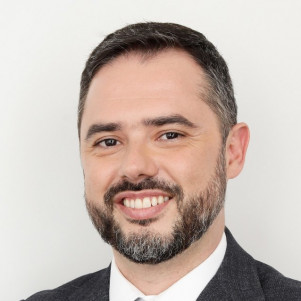
LEONARDO SELIGRA LOPES
Speaker
-
- 13:55 - 14:10
-
Long-term renal function in myelomeningocele patients
-

MICHAL MATERNIK
Speaker
-
- 14:10 - 14:20
-
Long-term bladder function in Prune-belly patients
-
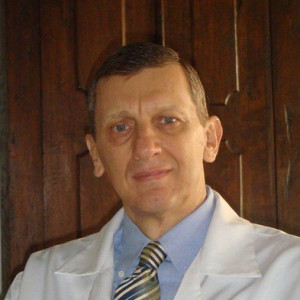
FRANCISCO TIBOR DENES
Speaker
-
- 14:20 - 14:35
-
Q&A
-

GUNTER DE WIN
Discussant
-

LEONARDO SELIGRA LOPES
Discussant
-

FRANCISCO TIBOR DENES
Discussant
-

MICHAL MATERNIK
Discussant
-
-
Plenary (Mezanino - Sala 100/101/102B)
- 14:35 - 15:30 Lecture
-
Transition Urology 2
-

ELIZABETH YERKES
Moderator
- 14:35 - 14:45
-
Long-term follow-up in LUTD patients
-

SERDAR TEKGUL
Speaker
-
- 14:45 - 14:55
-
Long-term bladder function in PUV patients
-

MICHAL MATERNIK
Speaker
-
- 14:55 - 15:05
-
Long-term bladder function in anorectal malformation patients
-
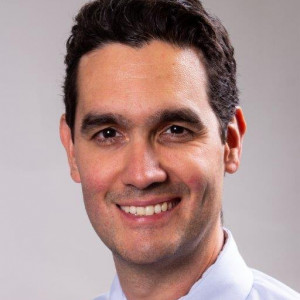
RODRIGO ROMAO
Speaker
-
- 15:05 - 15:20
-
Q&A
-

SERDAR TEKGUL
Discussant
-

MICHAL MATERNIK
Discussant
-

RODRIGO ROMAO
Discussant
-
- 15:20 - 15:30
-
ESPU Conference - How to engage different societies in one cause
-

SERDAR TEKGUL
Speaker
-
-
Plenary (Mezanino - Sala 100/101/102B)
- 15:30 - 15:50 Break
-
Break
Plenary (Mezanino - Sala 100/101/102B)
- 15:50 - 16:50 Lecture
-
Abstract Presentation
-

STACY TANAKA
Moderator
-
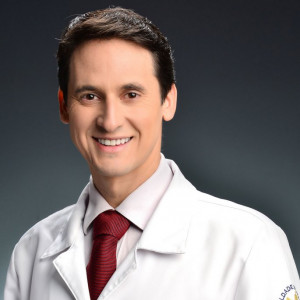
ANSELMO HOFFMANN
Moderator
- 15:50 - 15:54
-
Bladder Exstrophy-Epispadias Complex: The Effect Of Urotherapy On Incontinence
-

ANKA NIEUWHOF-LEPPINK
Abstract Presenter
-
- 15:54 - 15:58
-
Kelly’s VV Plasty For Catheterising Channels; First Reported Case Series
- 15:58 - 16:02
-
Bladder Exstrophy Consortium After 8 Years: The Short And Intermediate Term Outcomes
-

ELIZABETH ROTH
Abstract Presenter
-
- 16:02 - 16:10
-
Q&A
- 16:10 - 16:14
-
Continence Surgery For The Management Of Urinary Incontinence Due To Neurogenic Bladder: An Experience Of 73 Cases And Their Follow Up
-

RAHUL DEO SHARMA
Abstract Presenter
-
- 16:14 - 16:18
-
The Bladder Tube – A Non-Refluxing Conduit Created From The Augmented Bladder – A Useful Surgical Innovation - An Initial Report
-

SANTOSH KARMARKAR
Abstract Presenter
-
- 16:18 - 16:22
-
Bladder Surgery (Augmentation And Bladder Neck Tightening) Is Required For Achieving Adequate Social Continence In The Management Of Neurogenic Bladder – It Is Seemingly Much Underperformed In The World Today - A Viewpoint
-

SANTOSH KARMARKAR
Abstract Presenter
-
- 16:22 - 16:30
-
Q&A
- 16:30 - 16:34
-
Macedo Ileal Catheterizable Reservoir Adding The Scissors Maneuver (Yachia) To Improve Urinary Channel Continence: Long Term Follow-Up
-

TAIANE ROCHA CAMPELO
Abstract Presenter
-
- 16:34 - 16:38
-
Long-Term Complications Of Continent Catheterizable Channels
-

MIRCIA-AUREL ARDELEAN
Abstract Presenter
-
- 16:38 - 16:42
-
Myelomeningocele Operated In Utero And The Incontinent Bladder Pattern: Evaluation And Follow Up. Can We Predict The Outcome?
-

RENATA ALVES CORREA
Abstract Presenter
-
- 16:42 - 16:50
-
Q&A
-
Plenary (Mezanino - Sala 100/101/102B)
- 16:50 - 17:00 Closing
-
Closure Remarks
Plenary (Mezanino - Sala 100/101/102B)
- 17:00 - 18:00 Lecture
-
ICCS General Assembly (for members only)
Mezanino Sala - 100B
- 08:00 - 12:20 Course
-
Urodynamic Course
-

ISRAEL FRANCO
Coordinator
-

REJANE DE PAULA BERNARDES
Coordinator
- 08:00 - 08:10
-
Opening remarks
-

ISRAEL FRANCO
Presenter
-

REJANE DE PAULA BERNARDES
Presenter
-
- 08:10 - 08:40
-
Learning how to manage the machine
-

REJANE DE PAULA BERNARDES
Speaker
-
- 08:40 - 09:35
-
Uroflowmetry
- 08:41 - 08:50
-
Best practice for uroflowmetry
-

KATHERINE FISCHER
Speaker
-
- 08:50 - 09:00
-
Clinical usefulness of uroflowmetry
-

JOSÉ MURILLO BASTOS NETTO
Speaker
-
- 09:00 - 09:10
-
Flow index in the clinical practice
-

ISRAEL FRANCO
Speaker
-
- 09:10 - 09:20
-
EMG - fact or artifact?
-

JASON VAN BATAVIA
Speaker
-
- 09:20 - 09:35
-
Q&A
-

JOSÉ MURILLO BASTOS NETTO
Discussant
-

ISRAEL FRANCO
Discussant
-

JASON VAN BATAVIA
Discussant
-

KATHERINE FISCHER
Discussant
-
- 09:35 - 10:55
-
Cystometry
- 09:36 - 09:50
-
Technical aspects
-

ANNE WRIGHT
Speaker
-
- 09:50 - 10:00
-
Pitfalls on cystometry
-

CRISTIAN SAGER
Speaker
-
- 10:00 - 10:30
-
Break
- 10:30 - 10:40
-
The concept of bladder work
-

ISRAEL FRANCO
Speaker
-
- 10:40 - 10:55
-
Q&A
-

ISRAEL FRANCO
Discussant
-

ANNE WRIGHT
Discussant
-

CRISTIAN SAGER
Discussant
-
- 10:55 - 11:30
-
Pressure flow study
- 10:56 - 11:05
-
Technical aspects
-

STACY TANAKA
Speaker
-
- 11:05 - 11:15
-
Pitfalls
-

CRISTIAN SAGER
Speaker
-
- 11:15 - 11:30
-
Technique, benefits and pitfalls on video urodynamic
-
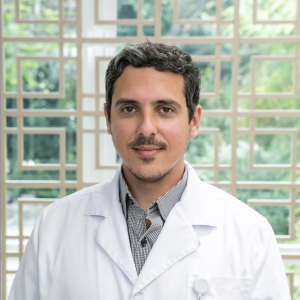
RENAN TIMOTEO DE OLIVEIRA
Speaker
-
- 11:30 - 12:15
-
Discussion based on clinal cases
-

PAUL AUSTIN
Presenter
-

STACY TANAKA
Discussant
-

CRISTIAN SAGER
Discussant
-

REJANE DE PAULA BERNARDES
Discussant
-

ANNE WRIGHT
Discussant
-

ISRAEL FRANCO
Discussant
-

JASON VAN BATAVIA
Discussant
-

JOSÉ MURILLO BASTOS NETTO
Discussant
-

RENAN TIMOTEO DE OLIVEIRA
Discussant
-
- 12:15 - 12:20
-
Closing remarks
-

ISRAEL FRANCO
Speaker
-

REJANE DE PAULA BERNARDES
Speaker
-
-
Mezanino Sala - 101B
- 09:00 - 12:05 Course
-
Spina Bifida Association's (SBA) Lifespan Bowel Management Protocol Workshop
-
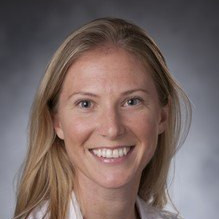
MARYELLEN KELLY
Coordinator
- 09:00 - 09:05
-
Discuss the development of the Bowel Management Protocol and intended audience
-

MARYELLEN KELLY
Speaker
-
- 09:05 - 09:10
-
Demonstrate the process for efficient use of the online bowel management protocol
-

JOY KERR
Speaker
-
- 09:10 - 09:15
-
Describe the overall protocol sections
-

MARYELLEN KELLY
Speaker
-

JOY KERR
Speaker
-

EILEEN SHERBURNE
Speaker
-
- 09:15 - 09:25
-
Describe bowel management protocol highlights using a developmental framework
- Infant & Toddler;
- Preschooler & school-ager;
- Teens & Adults.-

EILEEN SHERBURNE
Speaker
-
- 09:25 - 09:45
-
Describe Appendices Highlights
-

MARYELLEN KELLY
Speaker
-
- 09:45 - 11:00
-
Bowel Management Protocol Simulation with Q&A
- Suppository administration, Potty Training tips and bathroom set-up;
- Rectal Enema administration (including TAI, Cone, Balloon);
- Antegrade Enema administration (MACE, cecostomy, Chait);
- Towards independence tips/care partner role.-

MARYELLEN KELLY
Speaker
-

JOY KERR
Speaker
-

EILEEN SHERBURNE
Speaker
-
- 11:00 - 11:20
-
Present the etiology of neurogenic bladder and diagnosis
- Includes brief introduction of urodynamics;
- Brief discussion of surgical management techniques, namely Mitrofanoff.-

JOY KERR
Speaker
-
- 11:20 - 12:05
-
Clean intermittent catheter teaching per urethra and per surgical channel (Mitrofanoff)
Includes time for Q&A.-

MARYELLEN KELLY
Speaker
-

JOY KERR
Speaker
-
-
Mezanino Sala - 101B
- 13:30 - 17:00 Course
-
Sessão BSPU / SIUP - Aspectos práticos da incontinência (discussão de casos)
-

MARCOS GIANNETTI MACHADO
Coordinator
-

FERNANDA GHILARDI
Coordinator
-
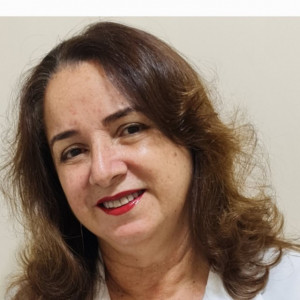
SANDRA CRISTINA DE SOUZA ANDRADE
Moderator
- 13:30 - 13:45
-
Estudo Radiológico na Disfunção Miccional
-

SANDRA CRISTINA DE SOUZA ANDRADE
Speaker
-
- 13:45 - 14:00
-
Ultrassonografia no diagnóstico da disfunção miccional
-
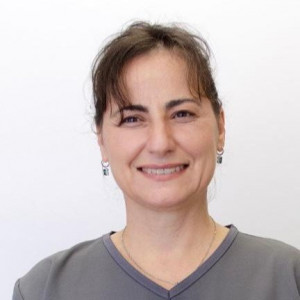
IARA REGINA SIQUEIRA LUCENA
Speaker
-
- 14:00 - 15:00
-
Caso clínico em BBD
-

RODRIGO LESSA PENA NASCIMENTO
Presenter
-

EDURNE ORMAECHEA
Presenter
-
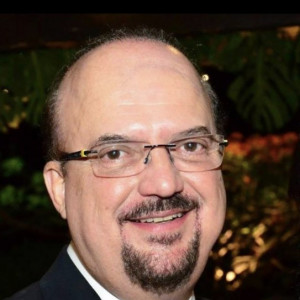
MIGUEL ZERATI FILHO
Discussant
-

JOSÉ MURILLO BASTOS NETTO
Discussant
-

ROCIO JIMENEZ CORRO
Discussant
-

ANA APARECIDA MARTINELLI BRAGA
Discussant
-

GLICIA ABREU
Discussant
-
- 15:00 - 15:20
-
Intervalo
- 15:20 - 15:30
-
Incontinência na extrofia. A técnica faz diferença?
-
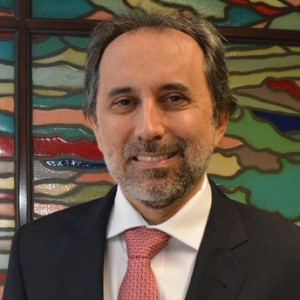
FRANCISCO NICANOR ARARUNA MACEDO
Speaker
-
- 15:30 - 16:00
-
Incontinência na extrofia - Discussão baseada em caso clínico
-

CAMILA FACHIN
Presenter
-
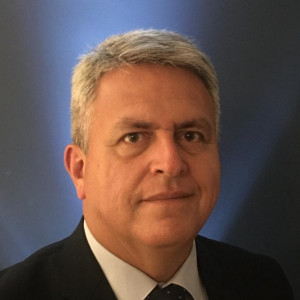
JOVELINO QUINTINO DE SOUZA LEAO
Discussant
-

RODRIGO ROMAO
Discussant
-

FERNANDO JOSE GONZALEZ LEDON
Discussant
-
- 16:00 - 16:30
-
VUP
-
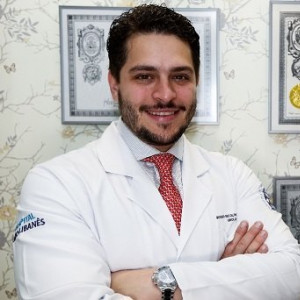
BRUNO NICOLINO CEZARINO
Speaker
-

ELIAKIM MASSUQUETO
Discussant
-

RODRIGO ROMAO
Discussant
-

LUIS BRAGA
Discussant
-
- 16:30 - 17:00
-
Bexiga neurogênica
-

VERIDIANA COSTA ANDRIOLI
Speaker
-

RAFAEL PAULETTI GONCALVES
Speaker
-

TIAGO ELIAS ROSITO
Discussant
-

CRISTIAN SAGER
Discussant
-

FRANCISCO TIBOR DENES
Discussant
-
-
Mezanino Sala - 100B
- 14:00 - 17:05 Course
-
Urotherapy Course
-

ANKA NIEUWHOF-LEPPINK
Coordinator
-

BIEKE SAMIJN
Coordinator
- 14:00 - 14:10
-
Opening remarks
-

ANKA NIEUWHOF-LEPPINK
Presenter
-

BIEKE SAMIJN
Presenter
-
- 14:10 - 14:30
-
Success rate based on evidence
-

BIEKE SAMIJN
Speaker
-
- 14:30 - 15:00
-
Aims, mechanisms and indications of urotherapy
-

ANKA NIEUWHOF-LEPPINK
Speaker
-
- 15:00 - 15:20
-
Urotherapy for children with neurodevelopmental disorders - a different approach?
-

ALEXANDER VON GONTARD
Speaker
-
- 15:20 - 15:40
-
Discussion based on statements and questions
-

ANKA NIEUWHOF-LEPPINK
Presenter
-

BIEKE SAMIJN
Presenter
-
- 15:40 - 16:00
-
Break
- 16:00 - 16:15
-
Pelvic Floor Muscle training and Biofeedback - step by step
-

BIEKE SAMIJN
Speaker
-
- 16:15 - 16:30
-
Neuromodulation - What have we learned?
- 16:30 - 16:40
-
Technical aspects of neuromodulation
-

ANANDA NACIF NUNES
Speaker
-
- 16:40 - 17:00
-
Discussion based on cases and Q&A
-

ANKA NIEUWHOF-LEPPINK
Presenter
-

BIEKE SAMIJN
Presenter
-
- 17:00 - 17:05
-
Closing remarks
-

ANKA NIEUWHOF-LEPPINK
Speaker
-

BIEKE SAMIJN
Speaker
-
-
Mezanino - Camarote 101B
- 14:00 - 18:00 Course
-
Physiotherapy Course (in Portuguese)
-
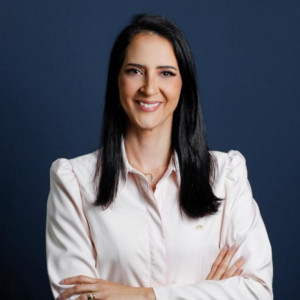
MARIA LUIZA VEIGA DA FONSECA
Coordinator
-
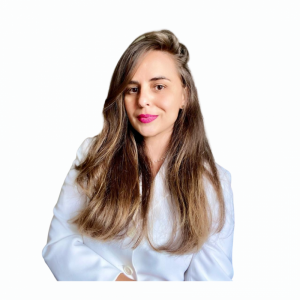
JOCEARA N. REIS
Coordinator
-

ANANDA NACIF NUNES
Coordinator
- 14:00 - 14:05
-
Abertura
-

MARIA LUIZA VEIGA DA FONSECA
Presenter
-

JOCEARA N. REIS
Presenter
-

ANANDA NACIF NUNES
Presenter
-
- 14:05 - 15:00
-
Enurese monossintomática
- 14:06 - 14:20
-
Enurese: o que o fisioterapeuta precisa saber sobre fisiopatologia e diagnóstico?
-

RITA PAVIONE
Speaker
-
- 14:20 - 14:35
-
Alarme noturno - quando indicar?
-

ALCINA TELES
Speaker
-
- 14:35 - 14:50
-
Como a fisioterapia pode contribuir para o tratamento da enurese monossintomática?
-

LILIANA FAJARDO
Speaker
-
- 14:50 - 15:00
-
Caso Clínico - Enurese Resistente
-

JOCEARA N. REIS
Speaker
-
- 15:00 - 16:00
-
Disfunções da Bexiga e do Intestino
- 15:01 - 15:15
-
Qual a relação entre emoções, bexiga e intestino?
-

GLAUCIA CRISTINA MEDEIROS DIAS
Speaker
-
- 15:15 - 15:30
-
Fisiopatologia e diagnóstico: qual o raciocínio para conduta fisioterapêutica?
-

DANIELE BRAGA CORDEIRO
Speaker
-
- 15:30 - 15:45
-
Uroterapia: como indicar para os diferentes tipos de disfunções?
-

ANANDA NACIF NUNES
Speaker
-
- 15:45 - 16:00
-
Eletroestimulação - quando indicar parassacral ou tibial?
-

MARIA LUIZA VEIGA DA FONSECA
Speaker
-
- 16:00 - 16:15
-
Caso Clínico
- 16:15 - 16:30
-
Intervalo
- 16:30 - 16:45
-
Biofeedback: quando e como realizar?
- 16:45 - 17:00
-
Biofeedback e TENS: quando associar as técnicas?
-

JOCEARA N. REIS
Speaker
-
- 17:00 - 17:15
-
Fisioterapia nas disfunções da bexiga e do intestino de causa neurogênica: quais as evidências?
-
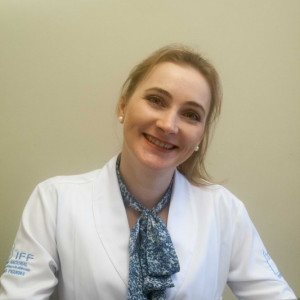
KATHIUSSA DOMBEK
Speaker
-
- 17:15 - 17:30
-
Como melhorar a adesão da criança ao tratamento, como eu faço?
-
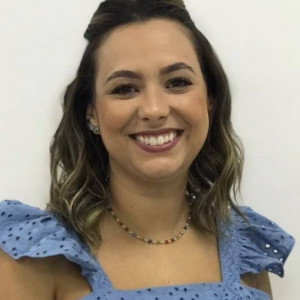
ADRIANA BOMBONATO
Speaker
-
- 17:30 - 18:00
-
Caso clínico e encerramento
-
